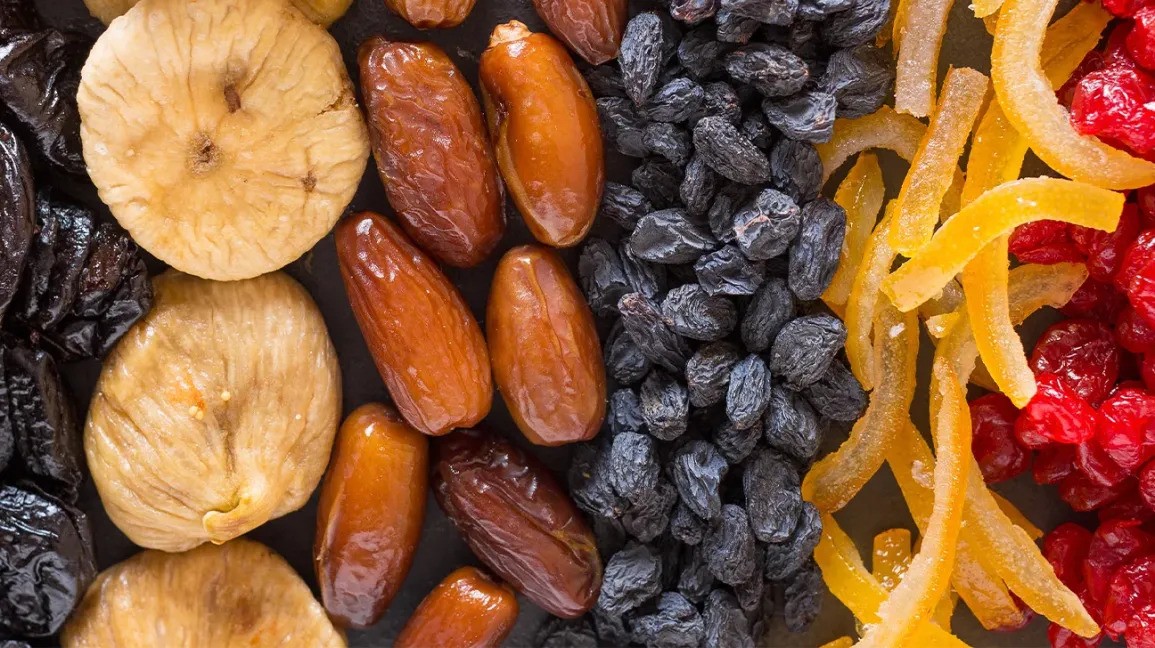- 16
- Jul
- 0

Diabetes Control Diet: 5 Dry Fruits to Avoid If You Have High Blood Sugar Levels
Managing diabetes involves careful attention to diet, and this includes being selective about the types of dry fruits you consume. While some dry fruits can be beneficial due to their low glycemic index and high nutrient content, others can lead to spikes in blood sugar levels. Here are five dry fruits that people with diabetes should be cautious about to maintain stable blood sugar levels and avoid potential health issues.
1. Raisins
Raisins, which are dried grapes, are high in natural sugars and carbohydrates. The drying process concentrates these sugars, making raisins a potential trigger for high blood sugar levels. Eating raisins can cause a rapid increase in glucose levels, which can be problematic for individuals managing diabetes. To keep your blood sugar in check, it’s best to limit or avoid raisins in your diet.
2. Dried Figs
Dried figs are a rich source of fiber and essential nutrients like calcium and potassium. However, they also contain significant amounts of natural sugars and carbohydrates. This sugar content can lead to elevated blood sugar levels, making dried figs a less suitable option for those with diabetes. While they offer many health benefits, the high sugar content means they should be consumed with caution.
3. Dates
Dates are another dried fruit that should be avoided by those with diabetes. They are packed with natural sugars, including fructose and glucose, which can cause a quick increase in blood sugar levels. Despite their high fiber content, the sugar concentration in dates outweighs the benefits for individuals managing diabetes. It’s advisable to keep dates out of your diet to help maintain stable blood sugar levels.
4. Dried Apricots
Dried apricots are known for their high fiber and vitamin content, but they also have a high glycemic index. This means that they can cause a significant rise in blood sugar levels. The concentration of sugars in dried apricots can make them problematic for diabetes management. For a balanced diet, it is better to avoid dried apricots or consume them in very limited quantities.
5. Dried Mangoes
Dried mangoes are sweet and flavorful but come with a high natural sugar content due to the drying process. This concentration of sugar can lead to spikes in blood glucose levels, which is a concern for anyone with diabetes. It is best to avoid dried mangoes or eat them sparingly if you are managing blood sugar levels.
Other Considerations for Dry Fruits in a Diabetic Diet
While certain dry fruits can cause problems for people with diabetes, it’s also important to be aware of other potential issues associated with dry fruits:
- High Calorie Content: Dry fruits are calorie-dense, and excessive consumption can contribute to weight gain. Weight management is essential for controlling diabetes, so portion control is important.
- Sulfites: Some dry fruits contain sulfites, which can cause allergic reactions or asthma in sensitive individuals. Always check labels for sulfite content if you have sensitivities.
Healthier Alternatives for Managing Blood Sugar
Fortunately, there are dry fruits and nuts that are better suited for a diabetic diet. For example, almonds, walnuts, and pistachios are excellent choices. These nuts are low in sugar, rich in fiber and healthy fats, and can help stabilize blood sugar levels. Prunes and apricots, when fresh, also have a lower glycemic index and can be a good alternative in moderation.
Conclusion
While dry fruits can be a tasty and nutritious part of your diet, it’s essential to choose them wisely if you have diabetes. Raisins, dried figs, dates, dried apricots, and dried mangoes are high in sugar and can lead to spikes in blood glucose levels. Opting for low-sugar alternatives and monitoring portion sizes can help you manage your diabetes more effectively.
Always consult with your doctor or a healthcare professional before making significant dietary changes for managing diabetes. They can provide personalized guidance based on your medical history and current health status.

Leave a Comment
You must be logged in to post a comment.